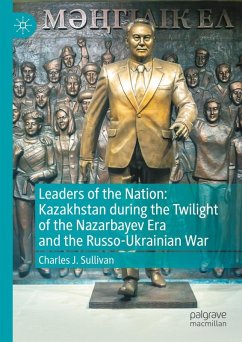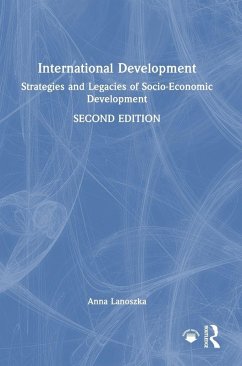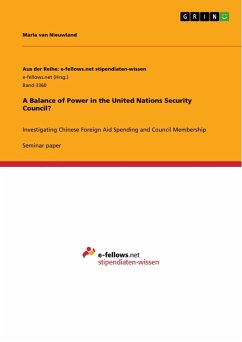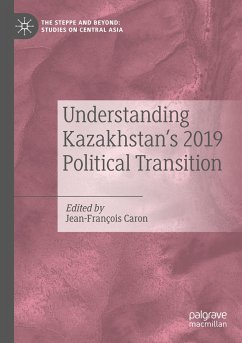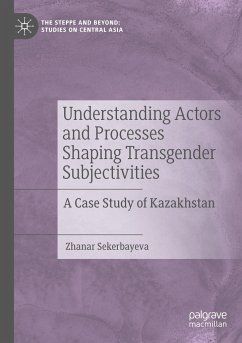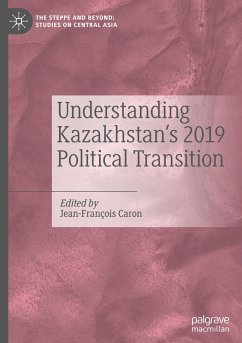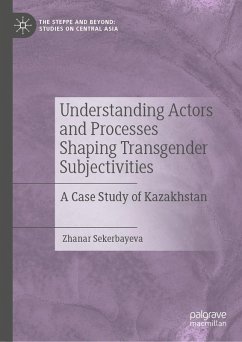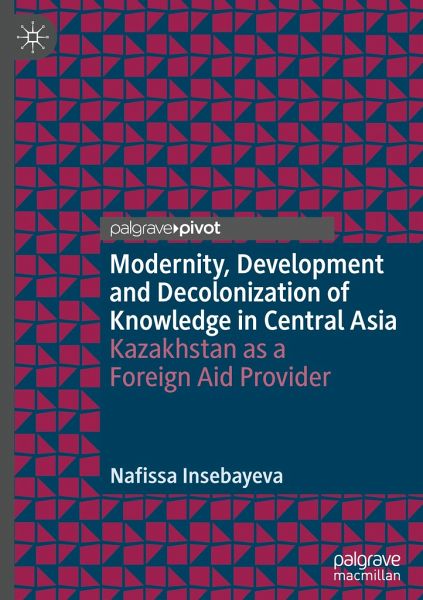
Modernity, Development and Decolonization of Knowledge in Central Asia
Kazakhstan as a Foreign Aid Provider

PAYBACK Punkte
23 °P sammeln!
This book joins the discussion on foreign aid triggered by the rise of multiplicity of emerging donors in international development and explores the transformation of Kazakhstan from a recipient country to a development aid provider.Drawing on fieldwork in Nur-Sultan and Almaty (Kazakhstan) between 2016 and 2019, this research evaluates the philosophy and core features of Kazakhstan's chosen development aid model and explains the factors that account for the construction of aid patterns of Kazakh donorship. This book will be of interest to scholars of Central Asia and the emerging politics of ...
This book joins the discussion on foreign aid triggered by the rise of multiplicity of emerging donors in international development and explores the transformation of Kazakhstan from a recipient country to a development aid provider.
Drawing on fieldwork in Nur-Sultan and Almaty (Kazakhstan) between 2016 and 2019, this research evaluates the philosophy and core features of Kazakhstan's chosen development aid model and explains the factors that account for the construction of aid patterns of Kazakh donorship. This book will be of interest to scholars of Central Asia and the emerging politics of Eurasia as well as scholars of politics and aid.
Drawing on fieldwork in Nur-Sultan and Almaty (Kazakhstan) between 2016 and 2019, this research evaluates the philosophy and core features of Kazakhstan's chosen development aid model and explains the factors that account for the construction of aid patterns of Kazakh donorship. This book will be of interest to scholars of Central Asia and the emerging politics of Eurasia as well as scholars of politics and aid.





